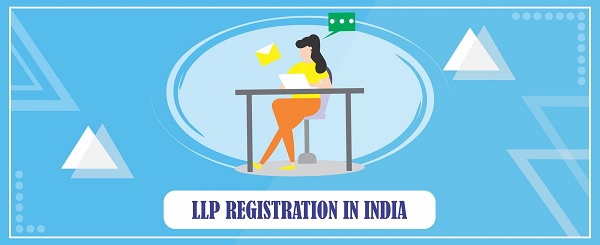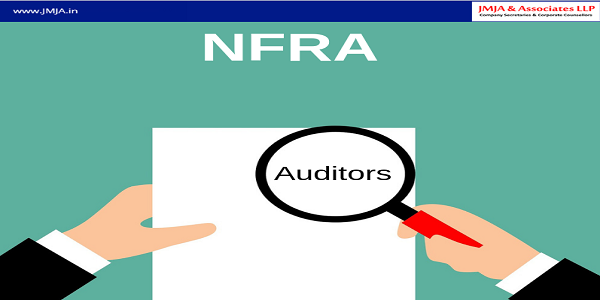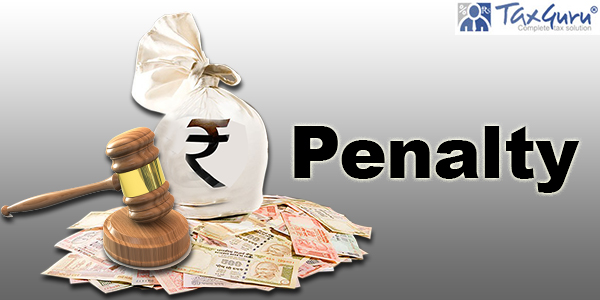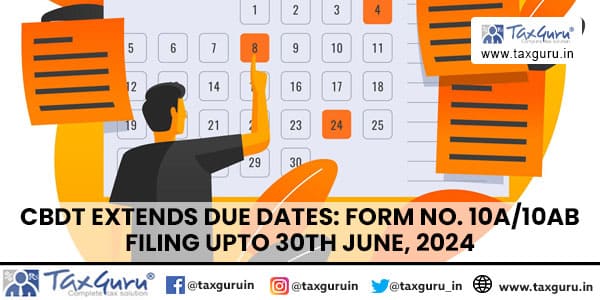Life Insurance Plans are very popular as a tool to get deduction under section 80C of the Income Tax Act, 1961. The investment in life insurance can be deducted up to Rs 1,50,000. (Rs. 1 Lakh upto A.Y. 2014-15). It a common perception that Premium Paid on all Life Insurance Policies qualifies for deduction under section 80C of the Income Tax Act,1961 and full premium amount qualifies for deduction under section 80C.
Apart from several other items provided under section 80C, a taxpayer, being an individual or a Hindu Undivided Family (HUF), can claim deduction under section 80C in respect of premium on life insurance policy paid by him/it during the year.

Policy to be taken in whose name?
In case of an individual, deduction is available in respect of policy taken in the name of taxpayer or his/her spouse or his/her children.
In case of a HUF, deduction is available in respect of policy taken in the name of any of the members of the HUF.
No deduction is available in respect of premium paid in respect of policy taken in the name of any person, other than given above.
Deduction Allowed
Overall deduction u/s 80C (along with deduction u/s 80CCC & 80CCD) allowed is up to Rs. 1,50,000
How much deduction available u/s 80C for investment in insurance policies???
Section 80C of the Income Tax Act provides deduction up to Rs 1,50,000 provided you invest according to condition given in section itself. One of the most popular way of saving tax by deduction u/s 80C is purchase of insurance policy. There is common perception that premium upto Rs 1,50,000 on any insurance product like life insurance or Unit Linked Insurance plan is fully allowed.However, this is not correct. The reason for such conclusion is section 80C (3) and 3(A) of the Income Tax Act which specifies which premium is eligible for deduction under section 80C of the Income Tax Act,1961.

Restriction on amount of deduction with respect to capital sum assured/ Eligible Premium under Sub-section (3) and (3A) of 80C of Income Tax Act,1961 For regular Life Insurance Policies (other than contract for deferred annuity)
Issued from 01.04.2012 – premium paid not in excess of 10% of Capital Sum Assured (as amended by Finance Act 2012).
Issued from 01.04.2003 and on or before 31.03.2012 – premium paid not in excess of 20% of Capital Sum Assured
Eligible Premium under Sub-section (3) and (3A) of 80C of Income Tax Act,1961 For Life Insurance Policies (other than contract for deferred annuity) for (a) a person with disability or a person with severe disability as referred to in section 80U, or (b) suffering from disease or ailment as specified in the rules made under section 80DDB,
Issued from 01.04.2013 – premium paid not in excess of 15% of Capital Sum Assured ( Inserted by the Finance Act, 2013, w.e.f. 1-4-2014).
Therefore , it is clear from section 80C (3) that whatever insurance premium is paid for any insurance policy( other than deferred annuity) or ULIP , the maximum allowable is fixed at 10% of the sum assured.
So, next time you buy any insurance product , think about sum assured and whether the insurance premium is just below 10 % of sum assured regular policies and 15% for for (a) a person with disability or a person with severe disability as referred to in section 80U, or (b) suffering from disease or ailment as specified in the rules made under section 80DDB.
Minimum holding period for Life insurance policy – 2 Years.
Minimum holding period for ULIP- 5 years
Taxability of Premium allowed in Earlier year- If any of Life insurance policy is terminated, sold, etc., before the minimum holding period specified above, then the deduction allowed in earlier years would be deemed as income of the previous year of termination, sale, etc. Further, no deduction will be allowed in respect of contribution, payment, etc., made towards such policy (i.e., which is terminated) during the year of termination.
Illustration
Mr. Raja had made the following payments during the financial year 2018-19 to avail of the advantage of deduction under section 80C:
1. Premium paid on his life insurance policy of Rs. 8,400. Policy was taken in April 2011 and sum assured was Rs. 25,000.
2. Premium of Rs. 1,000 on his another life insurance policy. Premium was due in March 2015 but was actually paid in April 2016.
3. Premium of Rs. 30,000 on life insurance policy taken in the name of his wife. Policy was taken in April 2012 and sum assured was Rs. 2,00,000.
4. Premium of Rs. 30,000 on life insurance policies taken in the name of his three children (one is minor daughter, second is major married daughter and third is major married son, who is a practicing engineer). The policies are term plans and premium on all the policies worked out to be 5% of capital sum assured.
5. Premium on life insurance policy taken in the name of his parents who are dependent on him. Premium paid during the year amounted to Rs. 25,200.
6. Premium on life insurance policy taken in the name of parents of his spouse who are dependent on him. Premium paid during the year amounted to Rs. 2,520.
7. Premium on life insurance policy taken in the name of his younger brother and sister dependent on him. Premium paid during the year amounted to Rs. 5,000.
8. Investment in PPF Rs. 60,000.
9. Investment in NSC Rs. 10,000. Interest accrued during the year on NSC amounted to Rs. 1,000.
10. Payment of tuition fees of his minor daughter Rs. 5,000.
11. Repayment of housing loan Rs. 12,000.
12. Investment in post office time deposit Rs. 10,000.
What will be the quantum of deduction under section 80C for the year 2018-19 which Mr. Raja will be entitled to claim in respect of above payments?
**
(A) The taxpayer can claim deduction under section 80C in respect of premium on life insurance policy paid by him during the year. Deduction is available in respect of policy taken in the name of taxpayer, his spouse and his children. No deduction is available in respect of premium paid in respect of policy taken in the name of any person other than given above. Deduction is restricted to 20% of capital sum assured in respect of policies issued on or before 3 1-3-2012 and 10% in case of policies issued on or after 1-4-2012. Considering the above provisions, deduction in respect of life insurance premium will be as follows:
1) In respect of premium of Rs. 8,400 on his life insurance policy which is taken in April 2011, deduction will be restricted to 20% of capital sum assured. Sum assured is Rs. 25,000 and 20% of the same will work out to be Rs. 5,000. Hence, out of Rs. 8,400, he will be eligible to claim deduction of Rs. 5,000.
2) Deduction under section 80C is available on payment basis. In respect of premium of Rs. 1,000 on his another policy (which is due in March), no deduction will be available in current year, since the premium is not paid in the current year. Premium is paid in next year and hence, he can claim deduction of Rs. 1,000 in next year.
3) In respect of premium of Rs. 30,000 on life insurance policy taken in the name of his wife, deduction will be restricted to 10% of capital sum assured. Sum assured is Rs. 2,00,000 and 10% of the same will work out to be Rs. 20,000, hence, out of Rs. 30,000, he will be eligible to claim deduction of Rs. 20,000.
4) Premium in respect of policy taken in the name of his children works out to be 5% of capital sum assured. Hence, entire amount of premium of Rs. 30,000 will be eligible for deduction. Further, it should be noted that deduction is allowed for all children irrespective of the fact whether they are dependent/independent, major/minor, or married/unmarried.
5) No deduction is available on account of premium paid in respect of policy taken in the name of any person other than the taxpayer, his spouse and his children. Hence, no deduction will be available in respect of premium paid by him on policy taken in the name of his parents, parents of his spouse and his brother/sister.
6) Total premium eligible for deduction under section 80C will amount to Rs. 55,000 (Rs. 5,000 + Rs. 20,000 + Rs. 30,000).
(B) The taxpayer can claim deduction under section 80C in respect of any contribution made by him towards statutory provident fund or recognised provident fund or approved superannuation fund or public provident fund (PPF). Thus, contribution to PPF of Rs. 60,000 will be eligible for deduction under section 80C.
(C) The taxpayer can claim deduction under section 80C in respect of amount paid by him towards purchase of NSC. Hence, he will be able to claim deduction under section 80C in respect of Rs. 10,000 paid by him towards purchase of NSC.
Accrued interest on NSC is taxed in the hands of the receiver and the same will be treated as an investment during the year of accrual (except for last year) and will qualify for deduction under section 80C. Hence, accrued interest of Rs. 1,000 will be treated as taxable income and on the same hand will also qualify for deduction under section 80C.
(D) The taxpayer can claim deduction under section 80C in respect of amount paid by him during the year towards tuition fees (excluding development fees, donation or similar payments) paid at the time of admission or thereafter, to any university, school, college or other educational institution situated in India, for full time education of any two children of the taxpayer. Hence, Rs. 5,000 paid by him on account of tuition fees of his minor daughter will qualify for deduction under section 80C.
(E) The taxpayer can claim deduction under section 80C in respect of amount paid by him towards repayment of housing loan. Hence, Rs. 12,000 paid by him on account of repayment of housing loan will qualify for deduction under section 80C.
(F) The taxpayer can claim deduction under section 80C in respect of investment made by him in post office time deposit. Hence, he can claim deduction of Rs. 10,000 under section 80C.
Considering above eligible items given in (A) to (F), the eligible amount of deduction will come to Rs. 1,53,000 (*)
However, total deduction under section 80C cannot exceed Rs. 1,50,000, hence, deduction will be limited to Rs. 1,50,000. In other words, Mr. Raja can claim deduction of Rs. 1,50,000 under section 80C.
(*) Rs. 55,000 LIP + Rs. 60,000 PPF + Rs. 11,000 NSC +Rs. 5,000 tuition fees + Rs. 12,000 housing loan + Rs. 10,000 time deposits.
(Updated On 23.06.2018)




















Call us to file Income tax return easily & hasslefree in very nominal charges.
GST SUVIDHA CENTER
TEZPUR, ASSAM 784001
CONTACT – 7896840885 / 7002009862
OR EMAIL AT – GASSOCIATES100@GMAIL.COM
SIR IN THIS YEAR 2018-19 I HAVE TAX LIVABILITY IS RS 5000/- HOW MUCH LIC PREMIUM AMOUNT REQUIRE TO SAVE THE TAX
in 80c i can add my parents lic premium,who are dependent on me, i heard this is for only individual(am unmarried).
I pay LIC premium on behalf of my married daughter. Son- in- Law is also quite financially strong. Whether the LIC premium paid by me is eligible for my Tax Exemption Claim ? Thanks
Sir,
i paid last 4 years Premium in financial year 2017-18, now I am e filing my returns, how much can I claim
I have a PLI with a premium of 15500 per month.
I have taken the PLI from February 2018.
In the current financial year 2018-19 when I am e filing my returns, how much can I claim
sir
i am an invidual
i am going to pay LIC amount from mu Current account cheque. Is it eligble for me to show this premium amount for next year 80c in Incometax return
I pay my LIC in my HUF account, can i claim LIC deduction u/s 80C in my Individual return?
Sir/madam, We both (husband-wife)are employees. Wife’s annual gross salary is less than 2 lacs, my own 4.5 lacs yearly means taxable..Can I claim for tax rebate on LIC and PLI policies purchased on wife’s name ? …..and……
Which amount should be counted for the purpose of tax rebate- either basic premium (e.g.Rs.1589) or actual premium paid including cess and tax (e.g.Rs.1654)??
::Anil Goswami, Shimla
LIc premium with GST qualify for deduction u/s 80c or not .please tell
Hi sir
I want to know that
LIc premium with GST qualify for deduction u/s 80c or not .please tell
can we claim benefit of lic premium paid for last 2 yr if such whole amount is paid in this year.
can we claim benefit of lic premium paid for last 2 yr if such amount is paid in this year.
If premium due date is on March 2017 and payment made on 25-06-2017
the amount eligible for deduction or not on income tax for financial year 2017-18
i was availing education loan….
last year october 2016 i closed the loan account by paying a lumpsom amount…..so can i get any benefit regarding this…….
also i paid emi of 10000 for 6 months and interest of 34119…which is applicable…..please reply in detail.
If due date of payment of premium is before 01-01-2016 and payment made on 20-06-2016
the amount eligible for deduction or not
can a father claim income tax claim for paying tution fees , LIC premium, NPS subscription for his daughter aged above 19?(daughter is a PAN card holder)
In swamy handbook given only 10%. There is no details about before 01.4.2012.
Here office see only swamy handbook. Can you referany authentic circular about this.
Whether Group personal accident insurance annual subscription amount Rs.400/- can deduct from tax?
Like In the above case if 2,50,000/ is paid for LIP in husbands name only and if wife is a tax payee also can she claim 1,00,000/ u/s 80c ..(250000 – 150000 = 100000)
a person taken 7 times sum assured, will he get tax benefit under 80(C).
1) If d excess premium amount of 10%sum assured is a taxable?I.e. 30000-20000=10000 is taxable or not
2) If he made policy for 10years he can claim up to 10 years?
And plz
I got maturity from the LIC then that amount will also add my income
Which SUM ASSURED is to be taken into account as there are two Sum Assured- 1-Basic Sum Assured (for calculations of the Bonus) 2- SUM Assured (Death Benefit) are mentioned in POLICY.
PL TELL WHETHER THE SERVICETAX PORTION IN THE INSURANCE PREMIUM BE ELIGIBLE FOR DEDUCTION U/S 80C
PLZ RELPY
CAN A HUF FIRM ….INVEST IN NSC FOR 80 C DEDUCTION
CAN A HUF FIRM—- INVEST IN NSC FOR 80 C .
can a person get deduction of LIC of his/her perents ???
IS IT ELGIBLE HOUSE PURCHASE STAMP DUTY PAYMENT UNDER 80 C SECTION ?
Calculation of 80C and 80D is included service tax or excluded
Whether Servicetax paid on LIC is eligible for 80C deduction
Hello Sir, I have opened a HUF from 2013-14 and have been filing returns since then. I have not availed any tax deductions so far under 80C and 80D. I want to know whether I can avail tax deduction under 80C and 80D for the life & health insurance premiums paid by me for which am not currentky availing any exemption for my individual returns as most of my 80C investment just covered under company EPF. Please advise.
if a insurance policy (policy premium Rs. 24000/-( for 7 years) & sum assured amount Rs. 375000/-, policy is taken before 31st March’12.
what the amount tax rebate I will get ?
Is it 20% of Sum assured amount or Premium amount.
If anybody knows ,please tell me
In L.I.C What is 10% of sum assured for tax rebate?
what is rebate LIC Single Premium Endowment Plan (Table No. 817) Premium for income tax in f.y. 2015-16
Is life insurance premium paid to foregin insurance company(UK)eligible for 80 C deduction?
If I have bought ULIP, then whether the same would be covered by 80C(2(i) or 80C(2)(x)? What is the difference between both as per Income tax Act?
Dear sir,
I have paid my insurance premium by way of cheque on 31-3-2015, however my cheque was cleared on 4-4-2015, then should I claim deduction under FY 2014-15 or in FY 2015-16 return?
Kindly give your comment with logic
Mr. Pratik has paid insurance premium of Rs. 25,000 in FY 2014-15 however he fails to claim the same in return of FY 2014-15, whether the said amount can be claimed in next FY 2015-16?
1. Whether late fees paid along with Life insurance premium is eligible for claiming the deduction u/s 80C(2)(i)?
2. Further As the words used u/s 80C(2) “Any sum paid or deposited” and “To effect or to keep in force an insurance” what does it mean? can we considered late fees includes Any sum paid?
Whether late fees paid along with Life insurance premium is eligible for claiming the deduction u/s 80C(2)(i)?
IS BAJAJ ALILIANZ CAPITAL UNIT GAIN ELEIGIBLE FOR DEDUCTION U/S 80C/80D.
FATHER CAN PAY PREMIUM OF A MARRIED DAUGHTER FOR LIC POLICY AND FOR THAT HE CAN GET TAX BENIFIT UNDER SECTION 80 C
PL REPLY ASAP
Topic on deduction under 80C with illustration of Example of Mr.Raja is very fruitfull.Everyone should read.
your suggestions are welcome.
No, Accident insurance is not covered under section 80C. Only life insurance is covered under section 80C and medical insurance is covered under section 80D
Dear Bipin
yes you will get the benifit under 80C in the same financial year ..
Bajaj allianz insurance policy (renew premium) eligible/ not for income tax deduction the current year for govt employee?
Hi Sir, I invested 2.5 Lakh’s under section 80C. I just wanted to know whether I’m eligible for income tax deduction the current financial year 2015-2016.
GPAIS(Group personal Accident Insurence Scheme) is an Accident insurence scheme for the Kerala Govt. employees with a premium amount of Rs.300/- per year. Can the GPAIS be taken into 80C section as a deduction?